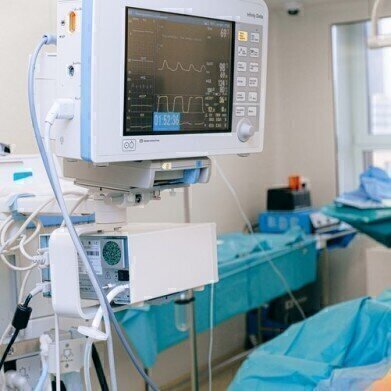Bioanalytical
Chromatography Checks for Side Effects of Lopinavir-Ritonavir Treatment for COVID-19
Oct 28 2020
There is currently no cure for Covid-19 (coronavirus disease 2019). Medical staff must use their skill and expertise to manage the symptoms to allow the body time to fight the infection. Several existing drugs are reported to give beneficial effects including some antiviral drugs, anti-inflammatory drugs, and malaria-based treatments. Some experts have also suggested the use of bleach and light – thanks Donald.
In a recent paper published in the journal Circulation: Arrhythmia and Electrophysiology, researchers from France report on a possible side effect of one treatment that has been used to treat patients suffering from Covid-19. Lopinavir-ritonavir is a combination of drugs that are used in HIV-1and have had some success with other coronavirus diseases. But could there be unwanted side effects and are these due to the drugs? Chromatography investigates.
Treating Covid-19
Many different drugs have been used to try and treat patients suffering from Covid-19. One drug which has been given to treat Covid-19 in both Europe and the US is remdesivir. This is an antiviral drug that some studies suggest can reduce the recovery time of patients needing some form of oxygen therapy. Some studies have also shown that anti-inflammatory drugs like dexamethasone can help to prevent organ and lung damage from inflammation due to Covid-19 infection.
Another antiviral treatment that has been used involves the combination of the drugs lopinavir (LPV) and ritonavir (RTV). These drugs were used in the treatment of the SARS-Cov-1 (severe acute respiratory syndrome-coronavirus-1) and MERS-Cov (Middle East respiratory syndrome-related coronavirus). LPV and RTV are protease inhibitors. When LPV is used alone it is rapidly broken down by the liver, when they are combined, RTV increases the levels and bioavailability of LPV.
Slow HR from the drugs?
One of the side effects of the drugs when they are used is that they can cause bradycardia. Bradycardia is a slower than normal heartbeat. Usually, the heartrate of an adult is 60-100 beats per minute. If you have bradycardia your heart beats slower and this means that the brain and other organs might not get enough oxygen. Combined with poorly functioning lungs, this could by serious in patients with Covid-19.
Christophe Beyls and colleagues followed 41 patients admitted to intensive care with a positive Covid-19 test who received treatment using LPV/RTV. The researchers analysed the plasma concentration of LPV/RTV using liquid chromatography-tandem mass spectrometry. Liquid chromatography is discussed in the article, Troubleshooting Retention Time Changes in (U)HPLC – a Systematic Approach.
Bradycardia was seen in nine patients after they received LPV/RTV treatment. Causality can be assumed because after the treatment was stopped the condition disappeared – no other cause was found. The authors write that one hypothesis is that the inflammatory damage associated with COVID-19 increases intestinal absorption of RTV/LPV in elderly patients and [increases] the risk of bradycardia. They note that if the treatment is used, elderly patients should be closely monitored for bradycardia.
Events
Jan 20 2025 Amsterdam, Netherlands
Feb 03 2025 Dubai, UAE
Feb 05 2025 Guangzhou, China
Mar 01 2025 Boston, MA, USA
Mar 04 2025 Berlin, Germany












